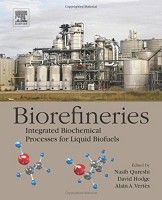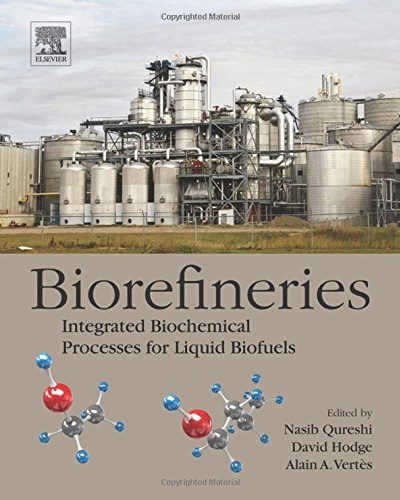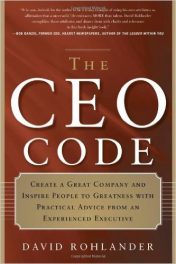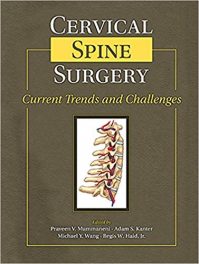 Editors: Nasib Qureshi, David Hodge, and Alain A. Vertes
Editors: Nasib Qureshi, David Hodge, and Alain A. Vertes
Publisher: Elsevier Science
Book Review by: Venkat Subramaniam
In the last few decades, the increasing demand and consumption of gasoline the world over, coupled with the rising concern on the depletion and further availability of fossil fuel reserves have given rise to the development of the biofuels as alternative sources of energy.
In this rare and unique type of book, two biochemical engineers and an expert on biotechnology commercialization give us hope. They show us how corn, sugar, and other forms of biomass are being used to produce fuels; what technological obstacles and limitations exist; and what still needs to be done to overcome those hurdles.
They point to the plentiful resources that exist on hat earth can be converted into the one scarce resource – energy – that we human beings need more and more of, as our numbers grow and larger numbers of people can enjoy higher standards of living.
In this collective effort, Qureshi, Hodge, and Vertes have chosen a number of relevant and critically important topics to discuss in this work, and organized them in the following manner, for our benefit:
- Cellulosic Biomass Processing and Biorefinery Road Map
- Overview of Existing Individual Unit Operations
- Biomass for Biorefining: Resources, Allocation, Utilization, and Policies
- Biorefinery Roadmaps
- Integration of (Hemi)-Cellulosic Biofuel Technologies with Chemical Pulp Production
- Integrated Process for Product Recovery
- Cellulosic Ethanol
- Development of Growth-Arrested Bioprocesses with Corynbacterium glutamicum for Cellulosic Ethanol Production from Complex Sugar Mixtures
- Consolidated Bioprocessing for Ethanol Production
- Integration of Ethanol Fermentation with Second Generation Biofuels Technologies
- Cellulosic Butanol
- Mixed Sugar Fermentation by Clostridia and Metabolic Engineering for Butanol Production
- Integrated Bioprocessing and Simultaneous Product Recovery for Butanol Production
- Integrated Production of Butanol from Glycerol
- Process Economics and Farm-Based Biorefinery
- Process Economics of Renewable Biorefineries: Butanol and Ethanol Production in Integrated Bioprocesses from Lignocellulosics and Other Industrial By-Products
- Integrated Farm-Based Biorefinery
This is an excellent book on the most urgent and important problems facing mankind today: sustainability in this era of shortage, environmental degradation, and climate change. The editors and authors not only lay out the problems we face, the obstacles that need to be overcome, the solutions we currently have, and the research that we need to undertake.
Editors:
Dr. Nasib Qureshi is a chemical and biochemical engineer by training. He had dual PhD degrees, one in biochemical/biological engineering from the University of Nebraska-Lincoln, and the other in fermentation technology from the Institute of Chemical Technology in Bombay. Dr. Qureshi performed postdoctoral research studies at Massey University in New Zealand and University of Illinois at Urbana-Champaign.
Currently he is working as a research chemical engineer for the Agriculture Research Service of the United States Department of Agriculture. He is an adjunct professor at the University of Illinois at Urbana-Champaign. His research focuses on developing novel bioprocess technologies, including integrated processes and simultaneous product recovery. He has over 220 authoritative papers, chapters, review articles, and conference presentations to his credit.
Dr. David Hodge obtained a B.S. in chemical engineering from Auburn University in Alabama, where he specialized in pulp and paper engineering, before earning M.S. and PhD degrees from Colorado State University. Dr. Hodge then worked as a postdoctoral researcher at the National Renewable Energy Laboratory of the United States Department of Energy, and as a faculty researcher at Lulea University of Technology in Sweden.
In 2009 he began a position as an assistant professor in the Department of Chemical Engineering and Materials Science at Michigan State University, with a joint appointment in Biosystems and Agricultural Engineering. Dr. Hodge’s research group at MSU investigates the challenges associated with the conversion and fractionation of plant cell biopolymers, as well as food crops, into renewable energy and fuels.
Dr. Alain Vertes is a London Business School Sloan Fellow and a microbiologist by training (University of Illinois at Urbana-Champaign, Institut Pasteur Paris, University of Lille Flandres-Artois). As a strategy and business development consultant, he works to enable funding and partnering in biotechnology.
Focusing on technology commercialization And development, he has contributed both to white (industrial) and red (pharmaceutical) biotechnology in different areas, including research, manufacturing, and contract research (Battelle Memorial Institute, PPD), while helping to facilitate strategic alliances in pharmaceuticals (Lilly, Pfizer, Roche), petrochemicals (Mitsubishi Chemical Corporation), public research, and consulting (Australian Strategic Policy Institute, NxR Biotechnologies, GmbH).
Contributors:
Solmaz Aslanzadeh, Tomas Brandberg, Thaddeus C. Ezeji, Zhiliang Fan, Caroline Haggstrom, David B. Hodge, Stephen R. Hughes, Masayuki Inui, Mofoluwake M, Ishola, Toru Jojima, Wei Liao, Yan (Susie) Liu, Siqing Liu, Nasib Qureshi, Tobias Richards, Ulrika Rova, Carmen Schotz, Vijay Singh, Ryan Stoklosa, Mohammad J. Taherzadeh, Keerthi P. Venkataramanan, Alain A. Vertes, and Hideaki Yukawa.







